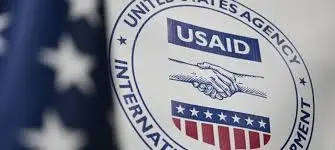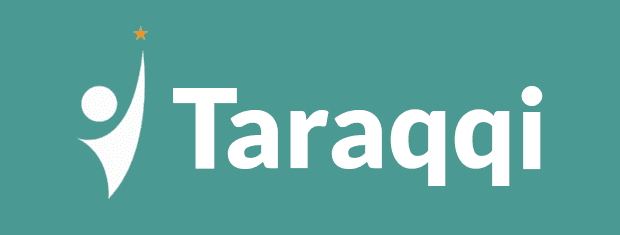USAID Reinstates Key Development Funding to Pakistan After Aid Freeze
ISLAMABAD – July 2025: The United States has officially reinstated select United States Agency for International Development (USAID) programs in Pakistan, months after suspending a major portion of its developmental aid under Executive Order 14169. The decision signals a recalibration of Washington’s aid policy toward Pakistan following renewed diplomatic engagements and structural discussions regarding aid transparency.
According to sources within the Economic Affairs Division (EAD) of Pakistan, grants under two significant USAID-funded initiatives—the US Need-Based Merit Scholarships for Pakistani University Students Programme (Phase-II) and the FATA Infrastructure Program—have resumed disbursement and will continue through June 2025.

Background: Executive Order 14169 and the Aid Suspension
In February 2025, the U.S. administration imposed a temporary freeze on approximately $845 million in development assistance to Pakistan. The suspension applied to both government-to-government (G2G) and off-budget projects, particularly those involving direct funding to non-governmental organizations (NGOs) operating independently within Pakistan.
The freeze stemmed from growing concerns in Washington regarding lack of oversight, insufficient transparency, and monitoring gaps within existing aid delivery structures. Analysts familiar with U.S. foreign policy noted that the move aligned with broader reforms under the Biden administration’s revised global aid policy that emphasizes accountability and data-backed development impact.
Gradual Reinstatement: USAID Projects Get the Green Light
Recent developments point to a measured reinstatement of development cooperation between the two nations. According to insider briefings received by ProPakistani, ongoing negotiations between U.S. Embassy officials in Islamabad and representatives from Pakistan’s EAD have led to conditional approval for select USAID initiatives.
These include:
-
The US Need-Based Merit Scholarships Programme (Phase-II): This program has historically provided thousands of underprivileged university students across Pakistan with full-tuition scholarships.
-
The FATA Infrastructure Program: Originally designed to rehabilitate and expand infrastructure in the Federally Administered Tribal Areas (now merged with Khyber Pakhtunkhwa), this project has resumed under a modified grant agreement with new accountability benchmarks.
Structural Shift: Pakistan Proposes Centralized NGO Aid Routing
A key aspect of the resumed engagement involves structural negotiations on how USAID funds are routed within Pakistan. Sources confirm that the Pakistani government has proposed a revised mechanism wherein all grants disbursed to NGOs are routed through relevant government ministries.
Government officials argue that this shift would:
-
Improve transparency and enable better financial oversight
-
Align aid with Pakistan’s national development priorities
-
Empower ministries with visibility into the recipients and amounts of aid being utilized within their sectors
A spokesperson of the Ministry of Planning, Development, and Special Initiatives, speaking anonymously, said:
“It’s not about controlling aid. It’s about ensuring development dollars serve the intended outcomes within a broader national framework.”
USAID-Pakistan Relations: A Decade-Long Partnership
Pakistan and the United States Agency of International Development enjoy a decades-long collaboration. In 2010, both nations signed the Pakistan Enhanced Partnership Agreement (PEPA), which established formal frameworks for delivering U.S. aid. This partnership was further fortified in 2023 with the signing of a five-year Development Objectives Assistance Agreement (DOAG) worth $445.6 million, aimed at:
-
Promoting climate-resilient economic growth
-
Strengthening inclusive governance mechanisms
-
Improving public health outcomes
Additionally, an amendment to PEPA in late 2023 introduced an extra $407 million, expanding USAID’s commitment to sustainable development in the region.

Experts’ Take on Aid Reinstatement and Structural Reform
As Dr. Ayesha Siddiqui, a public policy analyst, Institute for Development Studies Islamabad, implies:
“The new model being proposed by the Pakistani side is in line with international best practices. Government oversight does not mean loss of NGO independence—it’s about ensuring alignment and traceability.”
Development platforms like AidData have consistently emphasized the importance of data interoperability between donor agencies and host governments to track aid effectiveness, reduce redundancy, and boost impact.
Meanwhile, a U.S.-based policy think tank, the Center for Global Development, recently highlighted Pakistan as a “critical test case” for the Biden administration’s foreign aid recalibration strategy, citing its geopolitical importance and growing climate vulnerability.
Internal Coordination: Challenges Ahead
While both countries seem aligned on the need for improved aid transparency, implementation hurdles remain. According to insiders, the U.S. side has raised questions about:
-
Bureaucratic inefficiencies within Pakistani ministries
-
Potential politicization of aid allocation
-
Data integration challenges in monitoring NGO performance under ministry supervision
Nonetheless, the mutual commitment to dialogue has kept the door open for continued USAID engagement across other sectors such as education, climate adaptation, and healthcare delivery.
Looking Forward: Toward a More Accountable Aid Ecosystem
The reinstatement of key USAID programs marks a positive turning point in Pakistan-U.S. development cooperation. By advocating for an evolved structure that balances governmental oversight with NGO operational flexibility, both sides aim to foster an aid ecosystem that is efficient, accountable, and development-focused.
If ongoing discussions bear fruit, analysts believe a full-scale revival of USAID assistance—including funding for programs in agriculture, clean energy, and microfinance—could be on the horizon by early 2026.
People Also Ask: Key Questions on USAID-Pakistan Cooperation
What triggered the suspension of USAID funding to Pakistan?
The aid freeze was enacted under Executive Order 14169, primarily due to concerns around mismanagement, insufficient transparency in fund disbursement, and the lack of real-time monitoring of outcomes, especially in NGO-led initiatives.
Why are only certain USAID projects reinstated?
According to experts in development policy, the selective reinstatement reflects a pilot approach—restoring funding to projects with proven performance metrics while larger structural reforms are still being discussed.
How does the US Need-Based Merit Scholarships Programme benefit Pakistan?
This program supports financially disadvantaged university students, helping reduce dropout rates and improve access to higher education in underserved communities.
What is the significance of the FATA Infrastructure Program?
Experts in regional development assert that rebuilding and expanding infrastructure in formerly tribal areas is crucial to economic integration and stability, making it a high-priority initiative for both U.S. and Pakistani stakeholders.









